Donate Today!
Your offering to Divine Word helps our missionaries bring the Gospel of Christ to the poor and forgotten around the world.
Prepared by SVD Vocation Team
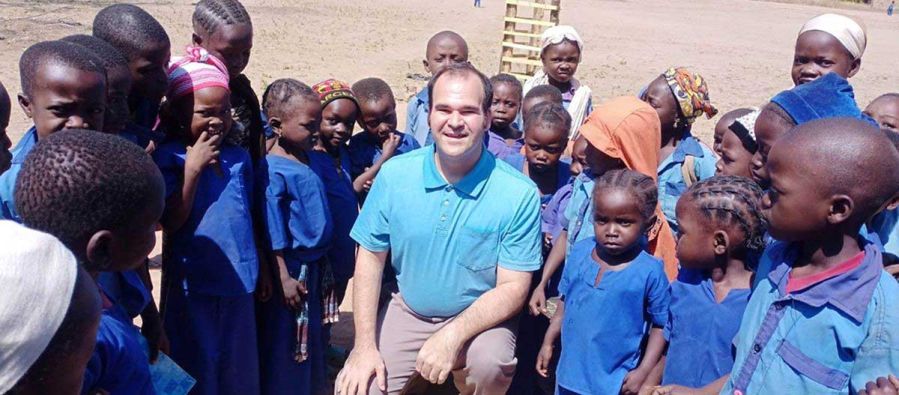
Seminarian Brian Junkes, SVD, the Florida native, recently completed his Cross-Cultural Training Program (CTP) in Chad and moved back to Chicago to complete his theology studies and formation towards the priesthood, but first he shared a little more about his time in Chad.
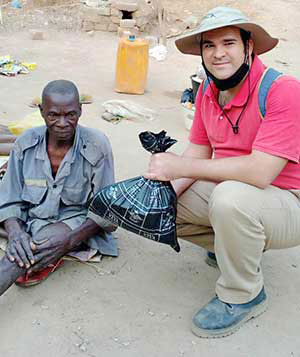 Men in formation expect certain aspects of culture shock, especially when they go on their first missionary assignment. Even though people in Chad speak more than 100 different indigenous languages, Brian knew that he’d need to start by learning French. It took a lot of time, practice and a lot of patience, but he picked it up.
Men in formation expect certain aspects of culture shock, especially when they go on their first missionary assignment. Even though people in Chad speak more than 100 different indigenous languages, Brian knew that he’d need to start by learning French. It took a lot of time, practice and a lot of patience, but he picked it up.
There were other aspects of the Chadian culture that were new to Brian, too. One was the stark difference in the way people live in one part of the country compared to others. In the bigger cities, people live similarly to Americans with large buildings, comfortable amenities and access to businesses. However, communities located outside of the cities often lack electricity and even running water. Many of the people in those areas are farmers. They hunt freely with slingshots, knives or bows and arrows. It’s not unusual to see people relieving themselves in the open because there’s no plumbing in many areas. Brian said it took time to adjust to these differences, but he got used to the culture as the months passed. He also started to understand and appreciate the people he was serving.
“I have found that Chadians are hardworking, willing to help, community oriented, resilient, hopeful and have pride in their culture and the particular ethnic groups they come from,” he said.
During his two years in Chad, Brian had malaria four times. After the first encounter, he started to recognize the symptoms: fatigue, difficulty concentrating, chills and loss of appetite. Thankfully, he had access to medication and was able to recover relatively quickly most of the time. However, there was one instance when he wasn’t as lucky.
A nurse treated him for malaria and typhoid because both are very common in the area. About 30 minutes after she left, Brian started having an allergic reaction to the medication. He started feeling cold and a few minutes later, Brian was convulsing and struggling to breathe. The nurse came back and gave him something to calm his body. Later he learned that the drug he took isn’t safe for people like Brian who have asthma. His condition continued to worsen in the days that followed and he eventually went to a bigger community where a doctor confirmed he had malaria and informed him that he also developed bronchitis from the allergic reaction. The experience could have been deadly.
“This was the first time I had an experience where I was certain I could have died and it made me seriously consider and think about it,” he said “As an SVD, I believe it’s important to think about the possibility of dying in the missions.”
Widespread poverty in Chad makes access to healthcare a real challenge for many people who live there. Brian says he knows just how lucky is was to have the opportunity to seek treatment when he was ill. Others aren’t so lucky.
As part of his ministry work, Brian frequently visited the sick and brought them Communion. Many of the people he met were isolated as a result of their illnesses and welcomed the chance to have a visitor.
“This really has informed me about how important it is to make sure that the church is accessible to all of God’s people, including the sick and disabled,” he said. “This is how we create community and build the Kingdom of God.”
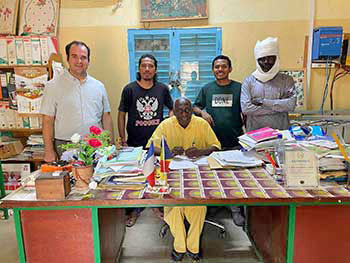 For years, Brian has been interested in teaching. He wanted to do his CTP in Chad because he knew that a fellow DWC graduate, Fr. Huy Tran, SVD, was working at a school there and hoped he could get involved.
For years, Brian has been interested in teaching. He wanted to do his CTP in Chad because he knew that a fellow DWC graduate, Fr. Huy Tran, SVD, was working at a school there and hoped he could get involved.
Fr. Huy asked Brian to help cover English classes from time to time, giving him a chance to get into the classroom and find out if education could be a viable path for him in the future. At first, he says the experience was challenging. He tried lecturing to the best of his ability, but the students lost interest and looked bored. Determined to succeed, he tried a new approach. Brian asked the students to take turns reading the materials. Then asked their opinions about the content. He tried to include everyone, not just the students who volunteered to participate. He encouraged their efforts. As the children started to get more involved in the lessons, Brian could see a shift in their understanding.
“I felt affirmed that I have the capabilities to be a teacher in the future and hope to get more experience to help further God’s mission and to serve God’s people,” he said.
One day in class, some students were joking around. One boy performed a dramatic kick, making his friends laugh. Intrigued, Brian asked if the student knew taekwondo. He didn’t. In fact, the kids told Brian that most people in Chad aren’t familiar with any form of martial arts. Brian started taking karate lessons when he was just 10. He went on to study several forms of martial arts and holds a second-degree black belt. So, he demonstrated a roundhouse kick for his class and the kids were immediately fascinated.
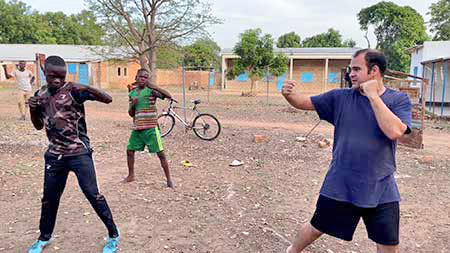 In no time, there was a group of eager children asking their teacher to train them in karate. After taking some time to consider his students’ request, Brian decided to go for it. In February, he started meeting weekly with a small group of boys who carefully followed his lead as they kicked, punched and yelled in unison.
In no time, there was a group of eager children asking their teacher to train them in karate. After taking some time to consider his students’ request, Brian decided to go for it. In February, he started meeting weekly with a small group of boys who carefully followed his lead as they kicked, punched and yelled in unison.
On a personal level, Brian says teaching karate helped remind him who he is. Throughout his life, he struggled with identity. As a person diagnosed with a learning disability, Brian says karate was a tool to help him grow as a child. It taught him hand-eye coordination, self-confidence, resilience, perseverance and self-discipline.
“It helped me to get through many challenges in my youth. Now it's like I am returning the favor and passing it on to the youth here in Chad, who do not have a lot available to them,” he said. “I never expected to be doing this as part of my CTP experience. Not in my wildest dreams. I only thought about working in education or in a parish to prepare me for priesthood, not teaching karate. This experience has revealed to me that being creative and doing something different as missionaries is good, that the church needs creativity and difference to bear fruit, breathe new life, and keep the church vibrant. This is how the church can better respond to new challenges, be guided by the Spirit, and be aware of the sign of the times.”
Brian finished his CTP in Chad at the end of June and returned to Chicago to complete his theology studies and formation. Just a few weeks prior to his departure, he was evacuated from the community where he was working for his safety. There was a violent gang attack in the market that left 14 people dead, including women and children. While Brian was saddened by this reality and disappointed to leave under these circumstances, he was uplifted to know that he had make some positive impact in the area during his experience. In fact, some of his karate students asked if he could find a way to continue training them even after he returned to the United States.
“The experience informed me that I do have what it takes, I have skills to engage people who are from cultures different from my own, and have much to offer people,” he said. “It can be hard at first because entering another culture and living with people in that culture to learn and integrate is difficult and challenging.”
He’s still not an expert on Chad, but Brian says his CTP experience helped him realize that cultures are complicated. In order to even begin understanding a new culture, he said a person really needs to learn their political, social, historical and economic situations. He hopes that these lessons will serve him well in future missionary assignments.
To find out how you can continue to support our missionary work, click below
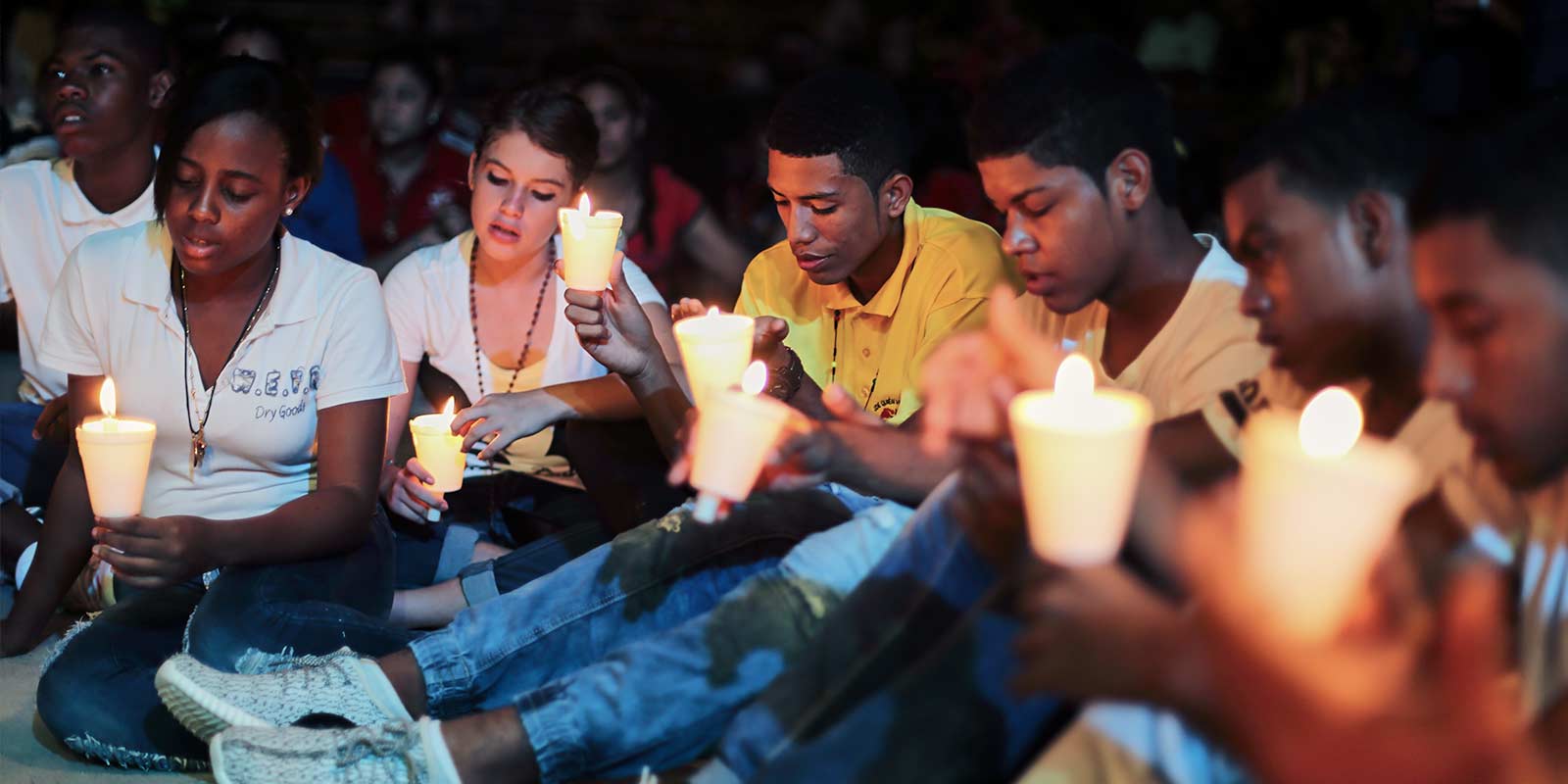
Your offering to Divine Word helps our missionaries bring the Gospel of Christ to the poor and forgotten around the world.